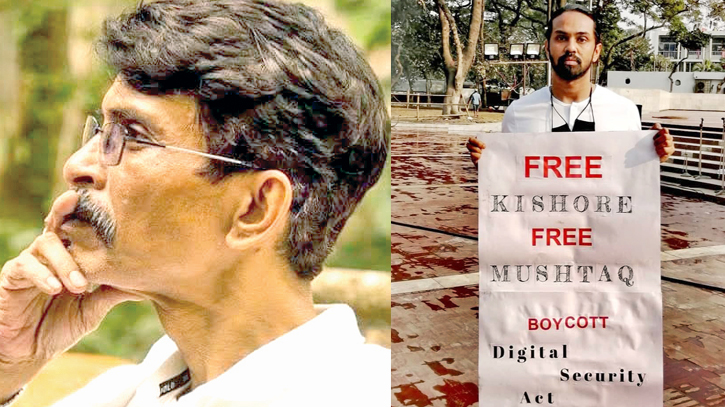
Photo : Collected
In a poignant Facebook post, acclaimed filmmaker Ashfaque Nipun has remembered writer Mushtaq Ahmed, who tragically died in police custody in 2021 after being arrested under the controversial Digital Security Act. Nipun's reflection comes in the wake of significant political changes in Bangladesh, marking the end of Sheikh Hasina's 15-year rule.
Nipun, known for directing ‘Mohanagar,’ expressed deep regret at never having met Ahmed personally and not being able to show him a Bangladesh free from what he describes as fascism. “You couldn't witness today's Bangladesh, free from fascism, celebrating liberation from autocracy,” Nipun wrote, addressing the late writer.
The filmmaker highlighted the irony of the current situation, noting that those responsible for Mushtaq Ahmed's imprisonment and alleged torture “are now on the run.” He emphasised Mushtaq Ahmed's role as one of the earliest martyrs in the struggle against the previous regime, praising his courage when many others remained silent out of fear.
Mushtaq Ahmed, who wrote under the pen name Michael Kumir Thakur, was arrested in May 2020 for criticising the government's handling of the pandemic. His death in custody on February 25, 2021, sparked outrage and calls for justice that remain unanswered to this day.
Nipun's post not only serves as a tribute to Ahmed but also as a reflection on the recent political shift in Bangladesh. He connects Mushtaq Ahmed's struggle to the broader fight for freedom, saying, “The struggle for freedom that you started with your pen four years ago, or even earlier, has been won today by the students and the masses.”
The filmmaker's words underscore the ongoing impact of Mushtaq Ahmed's writing and activism, linking his sacrifice to the current political climate. Nipun concluded his message with a personal touch, saying, “Wherever you are, know that during this turbulent liberation, someone is quietly remembering you and dedicating this victory to you.”
As Bangladesh enters a new political era, Nipun's tribute serves as a reminder of the costs of the struggle for freedom of expression and the enduring legacy of those who fought against oppression.
Messenger/Fameema








